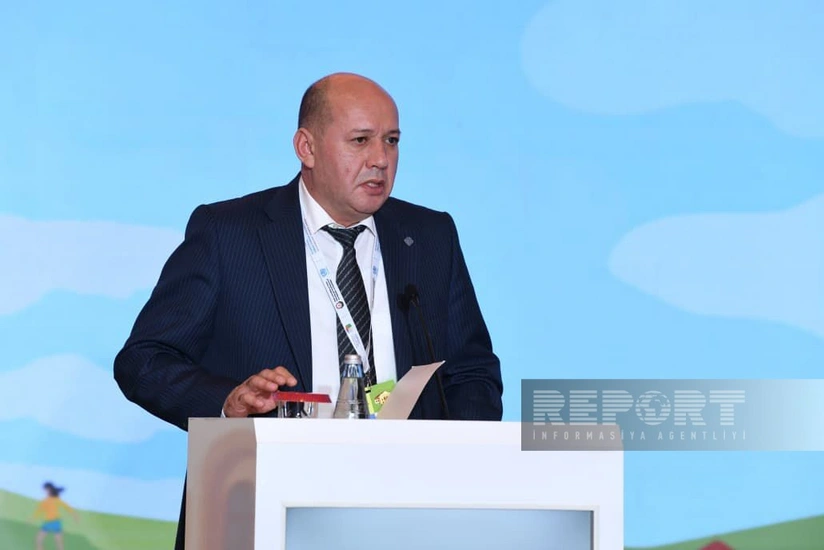Deputy secretary general of ECO: Integrated transport system needed to unlock potential of Middle Corridor
- 17 October, 2025
- 15:44

To fully unlock the Middle Corridor's potential, a fully integrated multimodal transport system must be created, Silapberdi Nurbediyev, deputy secretary-general of the Economic Cooperation Organization (ECO), said on the third day of the 3rd National Urban Forum of Azerbaijan (NUFA3) in Baku, Report informs.
He stated that the development of the Middle Corridor relies on three key areas that simultaneously stimulate socioeconomic growth and unlock the route's potential: connectivity, technology, and sustainability.
"In today's globalized world, connectivity determines competitiveness. Efficient transport and logistics systems are the foundation of economic growth and regional integration. They enable the movement of goods and people, reduce trade costs, attract investment, and open new markets," Nurbediyev noted.
He emphasized that connectivity is not only about building roads, railways, or ports, but also about connecting economies, communities, and ideas.
"Connectivity is also an opportunity for landlocked countries to access global markets and enable local communities to participate in regional and international trade. The Middle Corridor, connecting Asia and Europe through the territories of ECO member states, is at the very center of this vision," he added.
According to the deputy secretary-general, the Middle Corridor represents a vital bridge between continents, linking markets, strengthening cooperation, and supporting sustainable development.
He views the Middle Corridor as more than a trade route: "It is an engine of economic growth and regional partnership. Recent global upheavals have demonstrated the importance of diversifying trade and transport networks. Supply chain disruptions, geopolitical tensions, and climate risks have clearly demonstrated the vulnerability of dependence on a single route. The Middle Corridor offers an alternative-a shorter, safer, and more sustainable route."
Nurbediyev noted that the implementation of this project strengthens regional resilience and opens new opportunities for countries in the region.
"Logistics hubs, industrial zones, and service facilities are emerging along the Middle Corridor, creating jobs, stimulating innovation, and ensuring long-term prosperity. For ECO member states, this route is not only a strategic opportunity but also a collective responsibility. It strengthens economic cooperation, deepens integration, and cements our region's status as an important hub of Eurasian trade," the deputy secretary-general stated.
Summing up, Nurbediyev noted that unlocking the Middle Corridor's full potential requires the creation of an integrated multimodal transport network that unites railways, roads, seaports, and airports into a single system.
"We must continue to invest in modern, sustainable, and high-quality infrastructure; only then can the Middle Corridor become a full-fledged pillar of Eurasian trade," he concluded.
